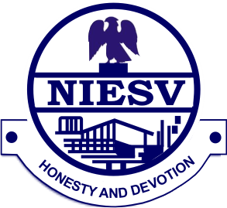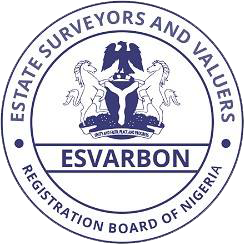Policy statement
It is the policy of Demola Dawodu and Associates (DDA) herein referred to as (the Company) to conduct business in an honest and ethical manner. As part of that, the Company takes a zero-tolerance approach to bribery and corruption and is committed to acting professionally, fairly and with integrity in all its business dealings and relationships, wherever it operates, and implementing and enforcing effective systems to counter bribery.
Anti-Bribery Provisions
The Corrupt Practices and Other Related Offences Act Cap C31, Laws of the Federation of Nigeria 2004 established the Independent Corrupt Practices Commission (ICPC), which is one of the major anti-corruption agencies in Nigeria. The Act generally prohibits the various perceived acts of corrupt practices arising from interactions or transactions involving public/government officers and the general public or private individuals. The basic thrust of the Act is prohibition of corrupt practices and bribery the essential elements of which are: giving or receiving a thing of value to influence an official act. The Act defines corruption to include bribery, fraud and other related offences while persons are defined to include natural persons, juristic persons or anybody of persons corporate or incorporate. it equally seeks to curb corrupt practices in private business transactions and inter personal relationships among individuals and persons. The various offences punishable under the sections include willful giving and receipt of gratification and bribery to influence a public duty, fraudulent acquisition and receipt of properties, deliberate frustration of investigation by the anti-corruption commission (ICPC), making of false returns, making of false or misleading statement to the Anti-Corruption Commission, attempts, conspiracies and abetments of the offences under the Act.
Purpose
The purpose of this Anti-Bribery & Anti-Corruption Policy (“Policy”) is to help the Company comply with applicable laws including but not limited to the Constitution of The Federal Republic of Nigeria 1999 and the Corrupt Practice and Other Related Offenses Act 2004 (together referred to in this Policy as “Anti-Corruption Laws”). Anti-Corruption Laws make it illegal for the Company, its officers, directors, employees and agents, and any stockholders acting on their behalf, to bribe any person or entity. The Company is also required to keep accurate and complete books and records and to maintain proper internal accounting controls. This Policy should be read in conjunction with Food Concepts Plc. Code of Business Ethics established by the Company and other general management policies. All Company personnel are expected to conduct Company business legally and ethically. Improper gifts, payments or offerings of anything of value to customers, partners, government officials or other third parties could be violations of the Anti-Corruption Laws and might jeopardize the Company’s growth and reputation. The use of Company funds or assets for any unlawful, improper or unethical purpose is prohibited. Specifically, it is the Company’s policy to comply fully with Anti- Corruption Laws.
Scope and applicability
This policy applies to all individuals working for or on behalf of the Company at all levels and grades, whether permanent, fixed-term or temporary, and wherever located, including consultants, contractors, seconded staff, casual staff, agency staff, volunteers, agents, sponsors and any other person who performs services for or on behalf of the Company, (collectively referred to as Jobholders in this policy).
In this policy, Third Party means any individual or organisation that A come into contact with during the course of work and the running of the Company’s business, and includes actual and potential clients, intermediaries, referrers of work, suppliers, distributors, business contacts, agents, advisers, government and public bodies (including their advisers, representatives and officials), politicians and political parties.
What is bribery?
A bribe is an inducement or reward offered, promised or provided in order to improperly gain any commercial, contractual, regulatory or personal advantage, which may constitute an offence under the Act, namely:
The four categories of offences are:
- Giving/Offering and Demand/Receipt of Gratification:
The Act prohibits direct or indirect giving/offering and receipt of bribes or gratification for the purpose of influencing official acts related to official duties. The gratification need not be in cash alone but also includes non-tangible effects such as dignity, employment and forbearance, office and employment among other things.
- Fraudulent Acquisition and Receipt of Property:
The Act punishes fraudulent receipt of properties or anything whether within or outside Nigeria, obtained by means of a felony or a misdemeanour or by means of acts done at a place outside Nigeria which if done in Nigeria would have amounted to a felony or misdemeanour and would amount to an offence in the foreign country.
- Duty to report bribery transaction:
The Act imposes a duty on both public officers and private individuals to report bribery transactions. Failure to report such an incidence without reasonable excuse is an offence punishable with imprisonment and or fine.
- Concealment of Information and Frustration of Investigation:
Any attempt leading to concealment of information from the enforcement agencies or deliberate frustration of investigation into corruption related matter
The Company may also be liable under the Act if it fails to prevent bribery by an associated person (including, but not limited to Jobholders) for the Company’s benefit.
Penalties
In accordance with the Corrupt Practices and other Related Offences Act 2000 in the Laws of the Federation of Nigeria, it is a punishable offence for an individual or employee to be involved in bribery and corruption. Under that Act, bribery by individuals is punishable by up to ten years’ imprisonment and/or an unlimited fine. A conviction for a bribery or corruption related offence would have severe reputational and/or financial consequences for the company.
Gifts and Hospitality
This policy does not prohibit normal and appropriate gifts and hospitality (given and received) to or from Third Parties unless otherwise specifically stated. However, we have specific internal policies and procedures which provide guidance to Jobholders as to what is to be regarded as normal and appropriate gifts and hospitality in terms of financial limits, subject to the principles set out below (the Overriding Principles), namely that any gift or hospitality:
- must not be made with the intention of improperly influencing a Third Party or Worker to obtain or retain business or a business advantage, or to reward the provision or retention of business or a business advantage, or in explicit or implicit exchange for favours or benefits;
- must comply with local law in all relevant countries;
- must be given in the name of the organisation, not in an individual’s name;
- must not include cash or a cash equivalent;
- must be appropriate in the circumstances;
- must be of an appropriate type and value and given at an appropriate time taking into account the reason for the gift;
- must be given openly, not secretly; and
- in the case of gifts, they must not be offered to, or accepted from, government officials or representatives, politicians or political parties, without the prior approval of the Compliance Officer
The Company appreciates that the practice of giving business gifts varies between countries and regions and what may be normal and acceptable in one region may not be in another. The test to be applied is whether in all the circumstances the gift or hospitality is reasonable and justifiable both in Nigeria and any other relevant country. The intention behind the gift should always be considered.
What is not acceptable?
It is not acceptable for any Jobholder (or someone on their behalf) to:
- give, promise to give, or offer, a payment, gift or hospitality with the expectation or hope that they or the Company will improperly be given a business advantage, or as a reward for a business advantage already improperly given;
- give, promise to give, or offer, a payment, gift or hospitality to a government official, agent or representative to facilitate or expedite a routine procedure;
- accept payment from a Third Party where it is known or suspected that it is offered or given with the expectation that the Third Party will improperly obtain a business advantage;
- accept a gift or hospitality from a Third Party where it is known or suspected that it is offered or provided with an expectation that a business advantage will be improperly provided by the Company in return;
- threaten or retaliate against another Jobholder who has refused to commit a bribery offence or who has raised concerns under this policy; or
- engage in any activity that might lead to a breach of this policy.
Facilitation payments and “kickbacks”
We do not make, and will not accept, facilitation payments or “kickbacks” of any kind, such as small, unofficial payments made to secure or expedite a routine government action by a government official, or payments made in return for a business favour or advantage.
Charitable Giving
While a donation to a bona fide charity is generally permissible, you should obtain a detailed representation from the charity regarding how the money will be spent, identify any ties between any officials with whom DDA interacts and the charity, and consult in advance of making any such donation with the Legal Team about taking additional measures to ensure that the payment is lawful and in compliance with DDA’s internal policies. You should also take the necessary steps to ensure that the donation is properly accounted for and correctly recorded in DDA’s books and records.
Record-Keeping, Accounting and Payment Practices
The record-keeping provisions of Anti-Corruption Laws require the Company to keep its books, records and accounts in reasonable detail, accurately and such that they fairly reflect all transactions and dispositions of assets. Thus, Anti-Corruption Laws prohibit the mischaracterisation or omission of any transaction on a company’s books or any failure to maintain proper accounting controls that result in such a mischaracterization or omission. Keeping detailed, accurate descriptions of all payments and expenses is crucial for compliance purposes.
Responsibilities and raising concerns
The prevention, detection and reporting of bribery and other forms of corruption are the responsibility of all those working for us or under our control. All Jobholders are required to avoid any activity that might lead to, or suggest, a breach of this policy. Jobholders are required to notify the Company as soon as possible if it is believed or suspected that a conflict with this policy has occurred, or may occur in the future, or if they are offered a bribe, are asked to make one, suspect that this may happen in the future, or believe that they are a victim of another form of unlawful activity.
Any employee who breaches this policy may face disciplinary action, which could result in dismissal for gross misconduct. We reserve our right to terminate our contractual relationship with non-employee Jobholders if they breach this policy.
If any Third Party is aware of any activity by any Jobholder which might lead to, or suggest, a breach of this policy, they should raise their concerns with the Company’s Compliance Officer, or responsible member of its Board of Directors.
Training and communication
Training on this policy is provided for all Jobholders and our zero-tolerance approach to bribery and corruption will, where appropriate, be communicated to clients, suppliers, contractors and business partners.
Monitoring and review
The Company monitors the effectiveness and reviews the implementation of this policy at appropriate intervals, considering its suitability, adequacy and effectiveness. Any improvements identified are made as soon as possible. Internal control systems and procedures are also subject to regular review to provide assurance that they are effective in countering any risks of bribery and corruption.
All Jobholders are aware that they are responsible for the success of this policy and should ensure they use it to disclose any suspected danger or wrongdoing.
This policy is administered by the Company’s compliance officer nominated and operating under the authority of a compliance committee duly constituted by three heads of departments or directors at any given time.
Any concerns by internal or external parties should be addressed to: The Compliance Officer, Demola Dawodu and Associates, 168, Awolowo Road, South-West Ikoyi, Lagos State, Nigeria.
Conclusion
This policy shall be reviewed regularly and may be updated from time to time.




